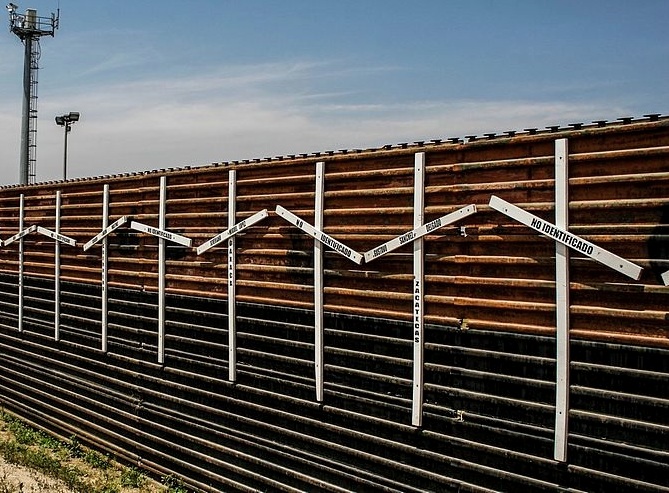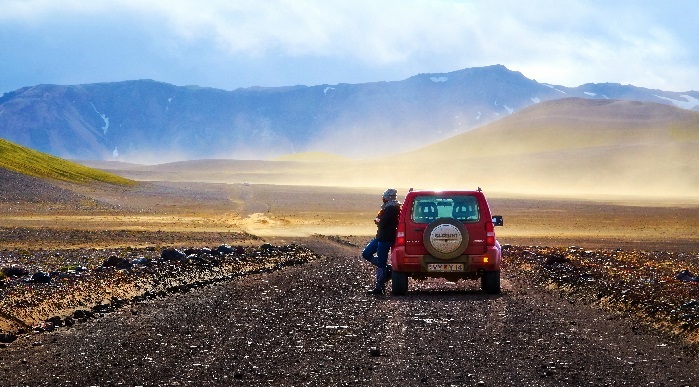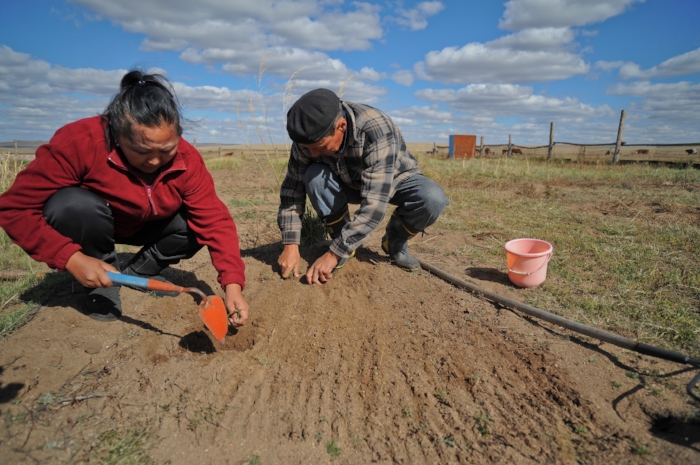Depression is not “all in your head” or just something you can get over by thinking yourself out of the problem. But some thoughts can help. However, people telling you to think differently or that all you need is a positive attitude are pretty much guaranteed not to be helpful.
I know about this because I went through depression. My depression was mostly caused by a long-term problematic situation but exacerbated by my genetic tendency toward depression.
I can tell my own story, for what it’s worth. It isn’t a prescription for anyone else though. It’s just footprints in the howling wilderness that is depression, a sign that someone went this way before.
Depression and loneliness often coincide. Being alone and having little social contact can seriously exacerbate many types of depression. And yet people with depression often feel a desire to be alone, not because they don’t like people but because they need quiet to heal, because talk can easily wander into things that cause them pain, and because interaction requires energy. One of the major factors in depression is often a sensation of weight on the body or long-standing exhaustion.
Beyond that, people with depression are often not that easy to be around. Some look and act like what you’d expect from a sad person. Many don’t, but they can exhibit other difficult symptoms, such as irritability, anger, difficulty concentrating, fidgeting or hyperactivity, neediness, rejection of others and/or excessive, unnecessary chatter. As a result, some people with depression may end up more socially isolated because other people avoid them due to things related to the depression, often creating a vicious spiral.
My depression had some of that.
It started with bullying and social ostracism at school. I’ve written about the particulars in other posts. In short, I went through a lot of social exclusion up until about age twenty due to my vision impairment, different looking face and a-typical upbringing.
I had almost no close friends and very little social interaction beyond my family as a child and as a teen. I went through years of schooling in which I was always in a crowd and never allowed to participate socially. At the same time, I was hyper aware of constant “feel good” messages directed at people my age, claiming that friendship is the most important thing in life.
Messages meant to help struggling students stressed that academics and great careers don’t really lead to happiness or a fulfilling life. “The only thing that really matters,” every book, movie and counseling office pamphlet seemed to tell me, “is how many people like you.”
Mostly they didn’t come right out and say the word “popularity,” but instead used the nicer sounding term “friendship,” but I got the message loud and clear. My straight As, athletic skills, artistic talents, volunteer activities and everything else I tried to feel good about were all second best because of the social stigma that kept me isolated.
Over the years, I developed a deep depression—the kind that often goes undiagnosed. I used anger to fuel my energy, despite the heavy sadness that weighed me down. I decided that if I could not have friends, I would be the best in something else. I excelled academically, learned to write professionally and travailed the world.
I found that in distant countries where the culture was very different from my own, I was seen primarily as an exotic foreigner and my vision impairment and different face were often overlooked. I made friends, though due to the conditions of travelling these were often brief, if intense friendships. In the days before universal email, I corresponded with dear friends on several continents by letter, carrying my little green address book around as protectively as my passport.
Each chance to settle in a new place brought hope that here I would finally get it right and make lasting friendships.
That was another message I had absorbed. I knew on some level that much of my social isolation was due to factors beyond my control, but because well-meaning teachers had noticed my social problems in school, I had often been subjected to lectures and training designed to teach “social skills.”
I understood that implicitly, something was wrong with my social skills. In short, my isolation was also my own fault.
Some of those exercises attempted to correct “blindisms,” like my tendency to stare at my fingers while listening to someone talk because I couldn’t see their face, my inability to make eye contact and my difficulty in perceiving other people’s non-verbal communication. I learned not to stare at my fingers or other objects and to endure the discomfort of a world out of focus while I listened attentively. I learned to fake eye contact by looking intently but not fixedly toward where I thought a person’s eyes were. I learned to guess at non-verbal communication fairly effectively.
Other parts of this “social skills” education aimed to moderate the anger that came as a result of the isolation, essentially teaching me to be extra passive, extra nice, extra polite and to focus on other peoples’ interests while making small talk. Some teachers attempted to teach me to dress fashionably, smile demurely and feign normalcy. While I did reasonably well at the first type of lessons, I was not a star student in the second set.
For one thing, I was angry. For another thing, I had difficulty believing that appearances really matter all that much.
I’ve never heard of that last being something common to blind people. I know blind women who are fashion obsessed. But I found the fixation of most of the world on how a person dressed, their posture and even their facial expression to be ridiculous. It took a long time for me to come to terms with that unwelcome reality and to learn both adequate fashion sense and a basic grasp of popular culture.
Empathy for my family and few sighted friends convinced me to try to adapt to their world and curb things they said were an appearance problem.
Still, even as an adult, I was often alone. Due to the work and traveling I did, I was far from my home and family and while I made friends, they were often people who had busy lives and older friendships they cared about more. I was a peripheral person to almost everyone I knew.
When my chosen profession of newspaper journalism became mostly obsolete and I ran into significant health problems in just a few short years, my lack of a local social network became intensely painful again. By this time, I had many dear friends but most of them lived far from where I eventually settled, close to my husband’s job. We had moved to a small town and found the gossip mill to be as vicious as it had been in high school.
The terror of being alone returned. Days spent working alone at my computer were tortuous. I dreaded the approach of weekends alone. I had long since internalized the belief that being alone was a sign of failure and utter rejection. I frantically joined whatever my husband was doing or volunteered in community organizations to make sure I was not alone. And then I found myself miserable and exhausted among people I didn’t really know and couldn’t visually recognize if I did.
I sank back into deep depression and saw no hope of ever getting out.
Unfortunately, I didn’t even keep good journals during that period, so I don’t know exactly how things changed. I know that the circumstances didn’t change. I couldn’t afford therapy and because I maintained a basic level of daily routine through sheer stubbornness, I didn’t end up with medication for depression.
What changed was my assumptions about the purpose of life. Through a mix of extensive reading, spiritual practice and writing a memoir, I came to the conclusion that the core message I had absorbed in my childhood—as well-intentioned as it might have been—was wrong.
Friendship is not the only thing that matters. The number of people who like you or spend time with you is not the primary measure of happiness.
For some reason, our society tells children that in an attempt to make disappointments in academics, sports, competitions and even family conflict feel less bitter. But it is no more true than the hollow hope that money will make one happy.
The second realization came from taking the Myers-Briggs personality test, which showed that I am clearly an introvert, defined as a person who needs significant amounts of time alone. I knew that I often didn’t enjoy social occasions and often felt exhausted around people for long periods of time. But I had believed this was simply a failing on my part.
Once I realized that I actually needed solitude and I let myself think of all the things I loved to do alone—writing, crafts, studying herbs, making videos, reading—I felt an odd slow-motion liberation.
It didn’t happen in one day or even one month or one year. But slowly I decided to build a life in which I would be happy even if I was alone. I did not give up on social interaction. I still welcomed time with friends but I didn’t strive after it. I focused my attention on those things I could more directly control. I built my home around my interests and scheduled my time around what fulfilled me.
Recently, the question of how to work one’s way out of depression connected to loneliness was put to me on an advice forum.
My answer begins with examining the reasons why a person is alone more than they would like. This examination assumes that if the person is asking this question, they are not “just bitter and driving people away” as is one common assumption about lonely people. If a person is truly seeking social contact and interested enough to ask the question and look for ways to handle their own depression, the loneliness is likely not simply “their fault.”
So, there are three other possibilities:
1. You may be truly objectively isolated (living in a place far from other people or amid people where you are a member of a very small and rejected minority..
2. You may be an extravert but have some disability or other difference that makes social interaction difficult and causes other people to be prejudiced against you.
3. You may be an introvert, meaning that you really do need to have time alone, but you have developed the common assumption that being an introvert is "bad" and being alone is a sign that you are a failure or a loser. Even if you don't think these things consciously, they may be in your subconscious.
In the first instance, loneliness is an environmental hardship but it doesn’t reflect poorly on you. It may be a struggle to stay out of depression anyway. Keeping active, maintaining a daily routine and maintaining long-distance contact with friends can help, if the main issue is geographic or other physical separation from others.
In the case of discrimination, depression is harder to avoid. You may be physically with people but still excluded. Still there will be those who accept you. They may just be few and far between.
In the end, you are left with a somewhat more difficult situation. You are geographically separated from those who do accept you, but you can still maintain long-distance contacts and maintain your routine.
It is the third instance, that needs the most internal work but also the one that is the most solvable. If your loneliness stems mainly from the fact that you are actually an introvert, changing your thinking can significantly help. Realizing that solitude can be a good thing is powerful anti-depression medicine. It is unlikely to happen over night, but finding joy in your interests and activities alone can go a long way toward fighting depression.
My struggle with loneliness and depression was a combination of these three factors. I am an introvert, but not an extreme introvert. I need time alone to recharge but I can be very social and gregarious with people. I didn’t always understand that you don’t have to be shy or self-contained to be an introvert. I am talkative and expressive. I just get my energy and rest from being alone.
I took on the common western assumption that being an introvert is "bad" and that the "key to happiness" is the number and volume of one's friends. As a result, I became seriously depressed. I thought I had to be social all the time to not be “a loser.”
I was terrified of being alone. When I was alone I was miserable, always thinking about why I had no option to be with someone. To avoid this, I ran community organizations, volunteered and got involved in all sorts of things. While this had its uses, I was exhausted and rarely enjoyed the social interaction. I was always under strain because I am an introvert by temperament and that means that I really physically need time alone to recharge, even when I didn't know it.
The key was understanding that being alone is not bad or a sign of failure, that I could enjoy my interests alone, that I needed solitude on a deep biological level and that some people would not accept me no matter what I did or how many “social skills” I learned. The first step was throwing off the stereotype I had absorbed from pop culture that says that your happiness is based on how many friends you have, on being one of those smiling faces in a big crowd on a Facebook photo and getting a ton of "likes" under it.
I learned to live in a way that I truly enjoy rather than in a way that I thought I was supposed to enjoy. Your way may be different from mine but the key is finding what it is, what makes you happy and what fulfills you.. If you are at least partly an introvert, you will have interests that can be pursued alone.
You may have been discouraged from doing things alone and warned that if you “shut yourself away,” you will never have any friends. That is only a danger if you see being alone as a failure and a sign of rejection. If you are enjoying yourself and allowing the solitude to refuel you, you will likely reemerge ready to take on the social world on a regular basis.






















